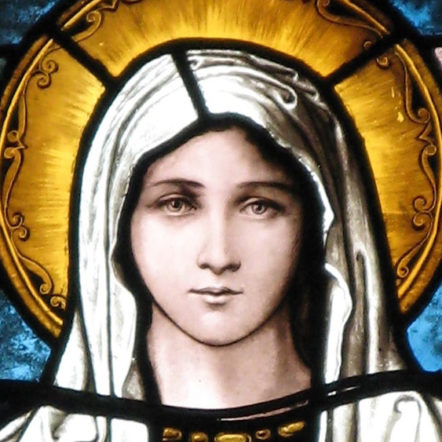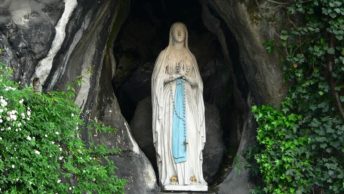As we enter the New Year, let us embrace and pay homage to the woman whose fiat, or “yes,” played a pivotal role in the divine plan of salvation. Mary, as the Mother of God, occupies a unique and revered position in Christian theology. The title “Mother of God” is not merely an honorary designation but encapsulates a profound truth about the Incarnation—the moment when the eternal Word of God took on human flesh in the person of Jesus Christ. The Solemnity of Mary, Mother of God, provides an opportunity for believers to reflect on the significance of Mary’s role in the divine economy and to draw inspiration from her exemplary faith.
Let us contemplate Mary’s journey as a woman of faith. Her life was marked by humility, obedience, and profound trust in God’s providence. Mary’s “yes” was not a passive acceptance but an active cooperation with God’s will, setting an example for all Christians to embrace God’s plan for their lives with similar openness and surrender. We emphasize Mary’s role as the Theotokos, the Mother of God. The Council of Ephesus in 431 officially affirmed this title, recognizing that Mary did not merely give birth to a human being but to the second person of the Holy Trinity. In honoring Mary as the Mother of God, the Church underscores the intimate connection between the divine and human in the person of Jesus Christ.
The year, let us profoundly seek the intercession of the Blessed Virgin Mary. The Church acknowledges Mary as a powerful advocate and mediator of grace, and Catholics turn to her with confidence, seeking her prayers and protection.
Hour 1: Mary’s Yes in the Old Testament
Scripture Reading: Genesis 3:15
Catholic Reflection: Contemplate the protoevangelium, the first announcement of the Gospel. Reflect on the role of the woman in the plan of salvation.
Lectio Divina Exercise: Read and meditate on the passage. What does it reveal about God’s plan for redemption?
Meditation Prayer: “Lord, help me understand Your plan for salvation. Like Mary, may I trust in Your promises.”
Hour 2: The Annunciation in Luke
Scripture Reading: Luke 1:26-38
Catholic Reflection: Dive into the Annunciation narrative. Reflect on Mary’s response to the angel Gabriel and the significance of her fiat.
Lectio Divina Exercise: Immerse yourself in the passage. What stands out to you, and how can you emulate Mary’s openness to God’s will?
Meditation Prayer: “Mary, Mother of God, teach me to surrender to God’s plan with the same trust and humility you displayed.”
Hour 3: Mary’s Visit to Elizabeth
Scripture Reading: Luke 1:39-56
Catholic Reflection: Reflect on Mary’s journey to visit her cousin Elizabeth. Consider the joy and humility expressed in the Magnificat.
Lectio Divina Exercise: Engage with the Magnificat. What lessons can you draw from Mary’s song of praise?
Meditation Prayer: “Lord, may my soul magnify the greatness of Your love. Like Mary, may I glorify You in all circumstances.”
Hour 4: The Birth of Jesus
Scripture Reading: Luke 2:1-20
Catholic Reflection: Ponder the nativity story. Contemplate the simplicity of Jesus’ birth and Mary’s role as the Mother of God.
Lectio Divina Exercise: Immerse yourself in the passage. What emotions and insights arise as you contemplate the birth of Jesus?
Meditation Prayer: “Jesus, born of Mary, grant me the grace to recognize Your presence in the ordinary moments of life.”
Hour 5: Presentation of Jesus in the Temple
Scripture Reading: Luke 2:22-38
Catholic Reflection: Reflect on the Presentation of Jesus in the Temple. Contemplate Simeon’s prophetic words to Mary.
Lectio Divina Exercise: Engage with Simeon’s words. What do they reveal about the role of Mary in God’s plan?
Meditation Prayer: “Lord, like Simeon, may I recognize the profound significance of Your presence in my life. Help me to offer myself wholly to You.”
Hour 6: Flight to Egypt and Return to Nazareth
Scripture Reading: Matthew 2:13-23
Catholic Reflection: Contemplate the hardships faced by the Holy Family in their flight to Egypt. Reflect on Mary’s trust in God’s providence.
Lectio Divina Exercise: Read and meditate on the passage. What lessons can you learn from Mary’s resilience and trust in challenging times?
Meditation Prayer: “Mary, model of trust, guide me in times of difficulty. Help me to rely on God’s providence with unwavering faith.”
Hour 7: Mary at the Wedding in Cana
Scripture Reading: John 2:1-11
Catholic Reflection: Reflect on Mary’s intercession at the wedding in Cana. Consider her directive to “do whatever He tells you.”
Lectio Divina Exercise: Engage with the passage. What insights can you draw from Mary’s guidance to the servants?
Meditation Prayer: “Lord, like the servants at Cana, may I heed Your voice through Mary’s guidance. Help me to follow Your commands with obedience.”
Hour 8: Mary at the Foot of the Cross
Scripture Reading: John 19:25-27
Catholic Reflection: Contemplate Mary’s presence at the crucifixion. Reflect on her maternal role in the spiritual life of believers.
Lectio Divina Exercise: Read and meditate on the passage. What does Mary’s presence at the foot of the cross teach you about love and sacrifice?
Meditation Prayer: “Mary, Mother of Sorrows, accompany me in my moments of pain. Help me to unite my suffering with the redemptive suffering of your Son.”
NOTES:
Tailor the experience for the passengers in the car or to pray at home.
Read the Scripture Readings aloud and let the other passengers (not the driver!) close their eyes and picture the scene.
Instruct those in the car on the Reflection exercise, keeping a period of silent reverence.
Move to Lectio Divina and pause.
Complete the hour with the Mediation prayer.
Invite those in the car to reflect on the activities and encourage each passenger to journal or sit quietly with their thoughts.








